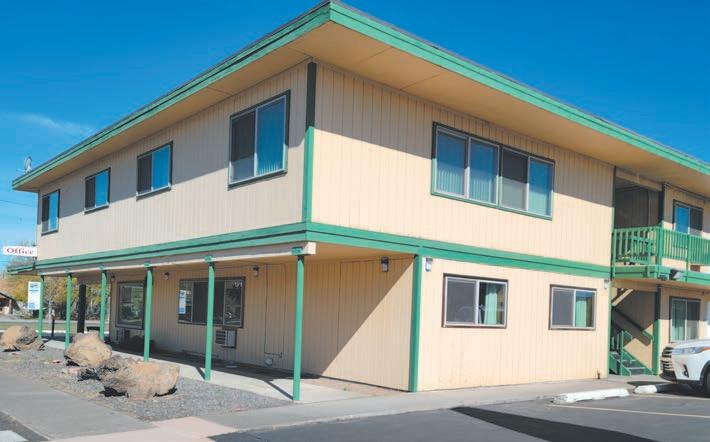FEATURE
A Tale of WWW.BENDSOURCE.COM / MAY 13, 2021 / BEND’S INDEPENDENT VOICE
10
Two Rentals Whether it’s raised your rent or your home value, the housing crisis in Central Oregon is palpable. These stories tell the tale of renters struggling to find housing—and how one group of neighbors fought back against short-term rentals. By Jack Harvel
B
end and all of Central Oregon have been in a housing crisis for years—a crisis that has only gotten worse as the pandemic unfolded. These are the stories of those seeking housing—or those looking to preserve the housing Bend does have. Not for rent Dwayne Tayles moved to Bend in 1968 when he was just six years old. He remembers graduating from Bend High School when the sign welcoming people to town listed a population of 9,500. He remembers -40 degree winters and hunting on land where there are now million-dollar homes. Nydonna Gibbs, his girlfriend, has what’s become a more typical origin story for Bendites: she moved here three years ago from Portland. Gibbs, originally from California, came to Bend to be closer to her mother and help her as she undergoes treatment for cancer. They have been living in hotels and motels together for the past seven months, searching for more permanent accommodations. “It’s expensive, or there isn’t anything available, or they want something that’s three times the income or is low income and we make too much, even though right now we’re pretty much doing that,” Gibbs said. “By the time you find something, it’s rented out, and for the average person with the application fees, it gets to be pretty spendy after a while.” Tayles until recently owned a home in Redmond, and rents out a property he owns in John Day, the small town in Grant
County, for $625 a month. Tayles has worked in asphalt maintenance for most of his life, though he’s also worked as a rodeo clown, parachuter and stand-up comedian. “I paved about every road in Bend,” Tayles said. “I still know my way around as Bend grows, and I’m a walking, talking GPS.” Gibbs lost her job at Wells Fargo during the 2008 financial crash and worked at a McDonald’s and most recently a Safeway to support herself and at times her family. Currently they are starting up their own asphalt maintenance company, with Tayles also doing jobs on Craigslist and either of them working for the motel where they live, in shuttling people to and from the Redmond airport. “I mean, we are struggling day to day. We’re slowly getting ahead because work is picking up, but for a while there was touch and go,” Gibbs said, “He works his butt off, and I had health issues so I took a step back from the position I have.” Gibbs and Tayles are just two stories of thousands of underserved renters in Bend. The motel they are staying at costs roughly $1,800 a month, slightly above the average rent for a one-bedroom apartment according to Zumper.com, a website that tracks apartment listings. “Without a doubt, Oregon and a number of states primarily in the West and East Coast have significantly underbuilt for the population that we have, and that we are gaining,” said Lynne McConnell, affordable housing manager for the City of Bend. American Community Survey data from the Census Bureau showed a
Jack Harvel
Dwayne Tayles and Nydonna Gibbs stand in front of their room in the Redmond Super 8 Motel, where they’ve lived since December after moving from a different hotel.
deficit of 5,000 homes for people making $25,000 and under, McConnell said— which is about what someone working full time at the state’s minimum wage would make. Affordable rent for that income bracket, at one-third of income, would be just under $700 a month. “One cannot build housing in Bend right now for that price without subsidy. It’s just not possible,” McConnell said. “I feel that’s kind of a bold statement. Usually, as city staff we would be a little softer than that when we say things, but I feel very comfortable saying that.” With an average median income of $78,600 in 2019, according to the City of Bend Affordable Housing
Department, the cutoff to qualify for affordable housing is $64,300 for buyers and $48,240 for renters. “There’s a pretty broad swath of the population that actually qualifies for affordable housing. That doesn’t mean that we have an available unit out there in the market for them. That’s a different story,” McConnell said. There are many reasons that there are too few housing units to go around, from the high cost of developing land, growth and local preferences for single-family dwellings. “The demand has been high because we are one of the fastest-growing communities as a percentage of population











